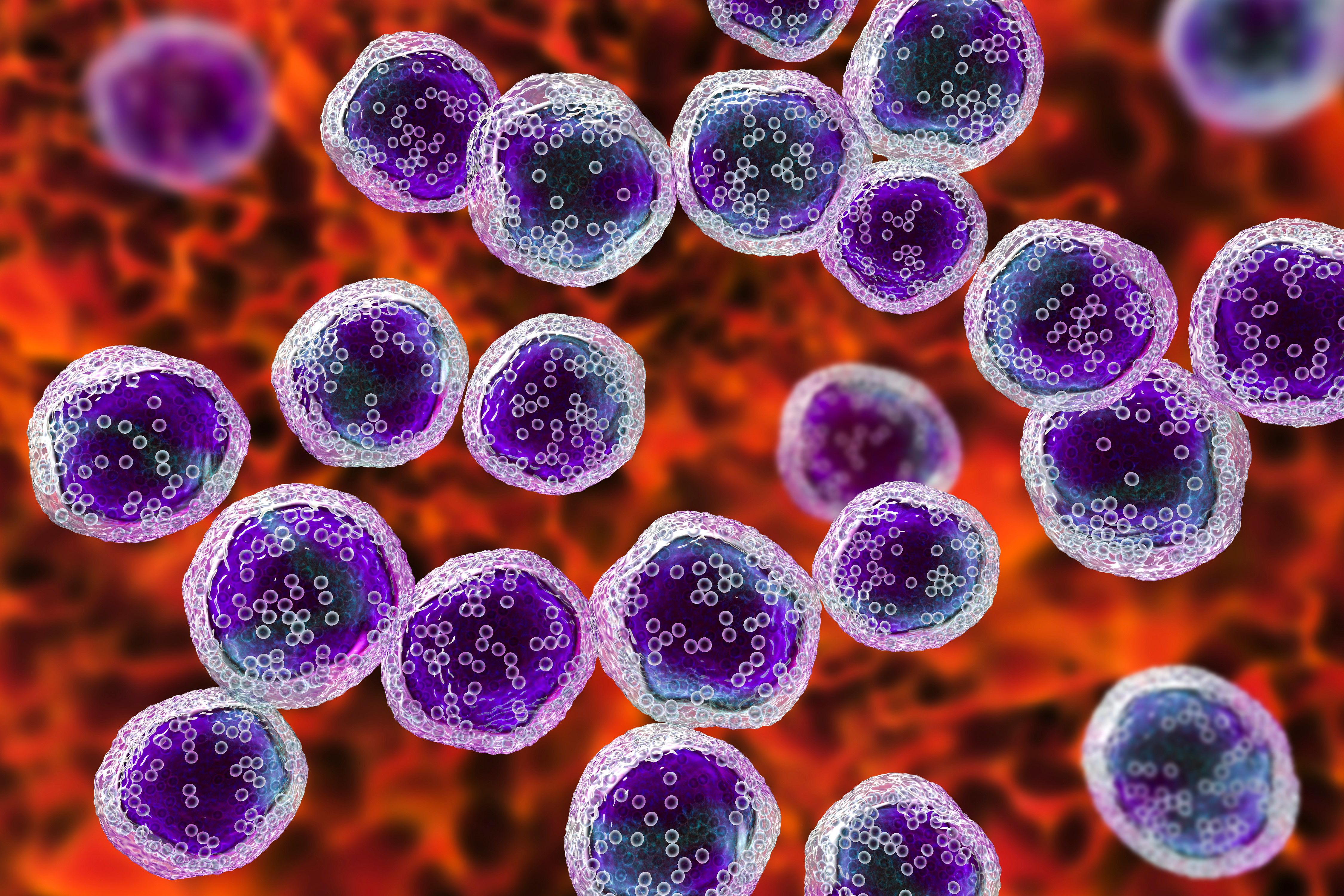FDA Lifts Partial Clinical Hold on Lacutamab IND
The investigational new drug application of lacutamab, a novel drug for advanced T-cell lymphoma, was put on partial clinical hold after the death of a patient last year.
Lymphoma cells: © Dr_Microbe - stock.adobe.com

- The FDA has lifted the partial clinical hold on the investigational new drug (IND) application of lacutamab (IPH4102) for patients with advanced T-cell lymphoma.1
- The partial clinical hold was put in place on October 5, 2023, following a patient death in the TELLOMAK study (NCT03902184).
- The patient death was determined to be unrelated to lactumab.
The partial clinical hold on the IND of lacutamab has been lifted by the FDA, according to Innate Pharma, and the phase 2 TELLOMAK study investigating lacutamab in patients with advanced T-cell lymphoma will proceed.1
Lacutamab is a first-in-class anti-KIR3DL2 humanized cytotoxicity-inducing antibody. The IND was put under a partial clinical hold in October 2023 after a patient died. The FDA and an independent committee reviewed the patient death and determined that it was due to disease progression and unrelated to lacutamab. The patient had Sézary syndrome, and their death was initially thought to result from hemophagocytic lymphohistiocytosis.
Along with the phase 2 TELLOMAK trial, lacutamab is also being investigated in a phase 1b trial (NCT05321147) in patients with peripheral T-cell lymphoma.
"We have worked closely with the FDA to diligently resolve the partial clinical hold on the lacutamab IND, which included an in-depth analysis of the fatal case which was due to progression of an aggressive form of the disease." said Sonia Quaratino, MD, PhD, chief medical officer of Innate Pharma, in a press release.
About the TELLOMAK Study
The phase 2 TELLOMAK study is a global, open-label, multicohort study evaluating lacutumab in patients with Sézary syndrome and mycosis fungoides. Patients in cohort 1 have Sézary syndrome and have received at least 2 prior lines of treatment, including mogamulizab, and are being treated with single-agent lacutamab. Patients in cohort 2 have KIR3DL2-expressing mycosis fungoides and are receiving single-agent lacutamab. Patients in cohort 3 have mycosis fungoides that is not expressing KIR3DL2 and are receiving single-agent lacutamab.1
The trial is fully enrolled with 170 patients. The primary end point is objective response rate (ORR), and the secondary end points are incidence of treatment-emergent adverse events, quality-of-life, pruritus, ORR using blinded central review, progression-free survival, overall survival, duration of response, pharmacokinetics, and immunogenicity.2
To be eligible for enrollment, patients with Sézary syndrome must have relapsed or refractory stage IVA or IVB disease, received at least 2 prior lines of treatment, and have blood stage B2 based on central evaluation by flow cytometry. Patients with mycosis fungoides must have relapsed or refractory stage IB, IIA, IIB, III, or IV disease, received at least 2 prior lines of therapy, and be able to provide at least 1 skin biopsy at screening. All patients must have an ECOG performance status ≤ 2, a minimum wash-out period of 3 weeks after their last prior systemic therapy, adequate baseline laboratory results, and recovered from all non-hematological adverse events from prior therapy to grade 1 or less except for alopecia.
REFERENCES:
1. Innate Pharma announces U.S. FDA lifts partial clinical hold on lacutamab clincal program. News release. Innate Pharma. January 4, 2024. Accessed January 4, 2024. http://tinyurl.com/yyenvx37
2. IPH4102 alone or in combination with chemotherapy in patients with advanced T cell lymphoma (TELLOMAK). ClinicalTrials.gov. Updated July 14, 2023. Accessed January 4, 2024. https://clinicaltrials.gov/study/NCT03902184
Examining the Non-Hodgkin Lymphoma Treatment Paradigm
July 15th 2022In season 3, episode 6 of Targeted Talks, Yazan Samhouri, MD, discusses the exciting new agents for the treatment of non-Hodgkin lymphoma, the clinical trials that support their use, and hopes for the future of treatment.
Listen